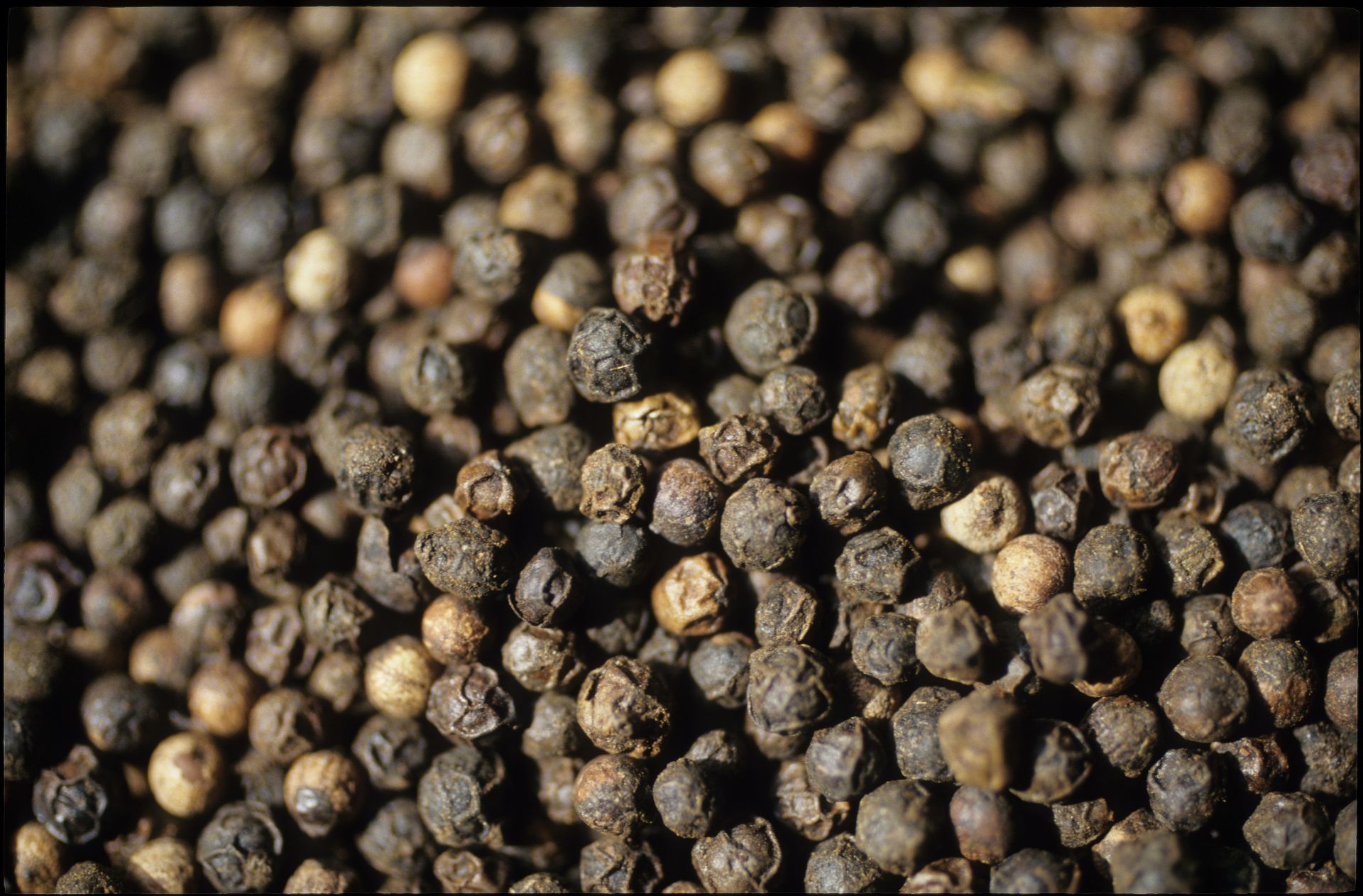Listen to this story
Since antiquity, empires have risen and fallen in the quest for a simple spice: pepper. People in different eras have created polities, cultivated trade networks and engaged in conflict in the pursuit of peppercorns they often prized as much as — or more than — gold and gemstones. Always “the king of spices,” pepper has been the most traded such product in human history. At times, it made up 80% of spice trade by volume, as scholars have assessed by studying shipwrecks, manifests, port documents and diaries. Prizing pepper around the world, monarchs, merchants and mariners raised armies, set out on quests and risked their lives and fortunes to gain the black spice — then used it to do more of the same.
Overlooked today, pepper has played a significant role in human affairs for millennia. Doctors in South Asia used it to treat an array of ailments while creating Ayurveda — a system of medicine that may be 3,000 years old. In Egypt, after the pharaoh Ramses II died in 1224 BCE, his mummifiers placed a peppercorn up each of his nostrils. People in ancient Greece, and everywhere from Iberia to India, used it as a currency while also prizing it as much as any luxury good in the premodern world. The Romans consumed it copiously, in every sphere of life, and created one of the earliest, most significant long-distance trades in history when they dealt directly with pepper producers in the East. Beyond that, the Romans used pepper as a symbol of power — collecting it as imperial tribute at their apex and paying it out to invading tribes to seek peace during their decline. Create a free account to continue reading Already a New Lines member? Log in here Create an account to access exclusive content.



